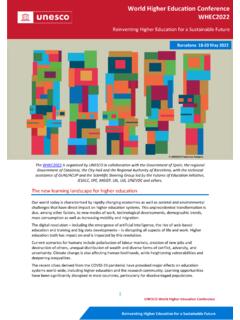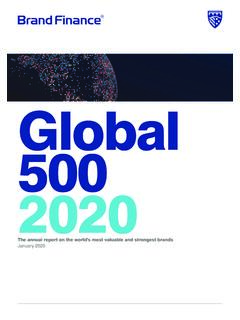Transcription of Psychology Interviewing Skills
1 Psychology Interviewing Skills Interviewing Skills for Psychology Undergraduate Students Leigh Mellish, Suzanne Morris, & Mark Do The School of Psychology , UNSW The beginning of interview wisdom is to appreciate the big difference between what you want to know and how you should ask1 Support for the development of this document has been provided by an Australian Learning and Teaching Council* (now Office for Learning and Teaching) National Teaching Fellowship (2010-2012) to Jacquelyn Cranney. Please contact the School of Psychology , UNSW for further information. *ALTC and OLT are initiatives of the Australian Government.
2 The views expressed in this report do not necessarily reflect the views of the Australian Government. You may not use this work for commercial purposes. 1 Gordon, R. L. (1992). Basic Interviewing Skills . USA: F. E. Peacock Publishers Inc. Quote page 9 1 PSYC3011 Psychology Lecture and Tutorial Outcomes: After the completion of this Interviewing component, students will: 1. Be able to articulate the key Skills required for a range of interview types. 2. Be more confident in their ability to apply these key Skills to a variety of Interviewing contexts. 3. Be more aware of areas that they need to further develop when communicating in everyday situations.
3 Interview Format Planning the Interview: Planning for an interview is an important process to understand what approach to take, and to develop appropriate questions to obtain the desired information. Planning can also increase awareness of potential pitfalls ( , playing devil s advocate with the questions), and areas where one may need to show more sensitivity ( , controversial topics, minority groups). It is also critical to ensure that appropriate time is allocated to various topics. Most interviews have some degree of planning involved as can be seen in job interviews, in which questions are targeted to assess role relevant Skills . The first decision in the planning process is the structure of an interview.
4 There are 3 main structures: Fully-Structured Semi Structured Un-structured 2 1) A fully-structured interview - all questions are delivered to each respondent consistently, regardless of their responses. 2) A semi-structured interview - there are some set questions that are delivered to all respondents. However, other questions vary depending on earlier responses. 3) An un-structured interview - an exploratory interview with few or no set questions. Clearly more planning is needed in structured interviews than unstructured interviews, which enable more consistency, for example when one needs to compare job candidates. It has been found that structured interviews are more valid for hiring employees (McDaniel et al.
5 , 1994). A simple structure is where each question is independent, just like a questionnaire ( , Question 1 Response 1, Q2 R2, Q3 R3). More complex structures come about when there are responses to one question, which should be followed up on ( , probing to get a better understanding of the response: Q1 How do you feel? , R1 Sad , Q2 Why do you feel sad ). Even more complexity can occur when there are multiple factors mentioned in a response ( , R2 Because my husband is a jerk, and my kids hate me and my cat died! ). The interviewer has the complex task of trying to work through multiple issues, which can result in bias if they assume that one issue is more important (or easier to talk about, or piques their own curiosity), and fails to discuss the other issues.
6 The interviewer may also simply forget as the conversation continues to return to discuss the other factors. Interview structure checklist A more complex interview structure requires additional cognitive demands to ensure that the interview is on track. Consider these questions in understanding your control of the interview: Are you on track? Do you know which way the sequence of questions and responses is leading? Has the respondent accidentally or intentionally led you into a topic which you did not intend? If so, how can you get back on track? Have you taken account of each aspect of a complex response or only followed up on one aspect and neglected others?
7 Is there consistency between different components of the response? Is there anything confusing that you need to clarify? 3 An interview can have various structures and substructures. It is important to be aware of the objective of the interview, to ensure that you choose the structure that will maximise the information that you can obtain within the allocated time frame. Understanding Objectives and Formulating Relevant Questions What is it you want to know and why? What is the information being used for? What direction do you want to take? Clarifying the objectives of the interview Will different responses affect the direction taken? Is it important, or are you just curious?
8 Have you defined the terms? Is there an established term? Clarify &/or define it Have you made any assumptions? Specifying the information needed to achieve those objectives Serves as a guide to stay on track If you decide to probe a response, think about where it will take you, and whether you will need to return to where you digressed. Open-ended or closed questions? Formulate concrete questions designed to obtain the information 4 Interview stages Once the planning has occurred, the actual interview can be considered to occur in 3 stages: Each phase serves a different purpose, and emphasises different Skills . For example, building rapport is most essential in the opening phase, whereas active listening is most crucial for the main body of the interview.
9 Opening Introduce yourself Establish your credentials (role, employer, affiliation) Introduce the methods to be used to record the information Inform how long the interview will take (don t under-estimate) Start with easy questions, and/or small talk to build rapport, and then transition into more stressful /difficult questions Main Body Develop the main themes and explore the responses Move from general information to more specific information (using open questions as well as closed questions) Begin with the least threatening content to establish rapport and trust before exploring sensitive or confronting topics. Closing Wind down gradually, rather than an abrupt ending Consider recapping the key themes If appropriate, ask if they have any questions for you.
10 Be selective in your disclosure. Thank the individual for their interest and effort. 5 Questions You will probably use a range of question types during the interview. Be aware that the questions you select will greatly influence the direction of the interview. You may need to ask a question in more than one way in order to elicit the information you are after. Open ended questions Useful when the interview is exploratory, or when the emphasis is on discovering the respondent s perspective on events. Can motivate by allowing free association, giving recognition, allowing the interviewer to be a sympathetic listener, and avoiding more specific questions that might alert the respondent to ego-threatening information.




